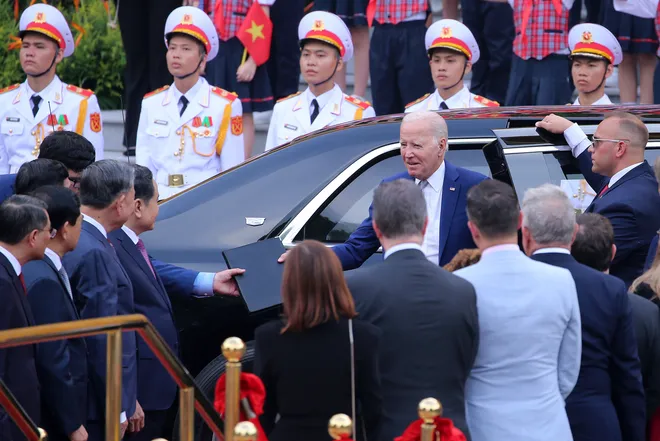Newsmatro

President Joe Biden encountered difficulties at the recent G20 summit in India as he sought to rally world leaders to condemn Russia’s ongoing war in Ukraine. Despite the absence of Russian President Vladimir Putin and Chinese President Xi Jinping at the New Delhi gathering, the international community refrained from explicitly censuring Russia for its invasion.
The G20, comprising leaders from some of the world’s most powerful economies, did not issue a condemnation of Russia’s actions. Instead, the group expressed a more general sentiment, urging countries to “refrain from the threat or use of force to seek territorial acquisition” and acknowledging “the human suffering and negative impacts of the war.”
Ukraine, which was not invited to the summit despite requests from U.S. officials, expressed disappointment with the G20 statement. Ukrainian officials had hoped to counter Russia’s narrative about the conflict on the global stage. Ukraine’s foreign affairs ministry voiced its dissatisfaction on social media, proposing changes to the statement that would have squarely identified Russia as the aggressor.
President Biden defended the G20 statement, emphasizing that the issue was mainly a concern involving Russia and China, both of which had high-ranking representatives present at the summit. U.S. Secretary of State Antony Blinken underscored the importance of G20 unity, even though Russia is a member, suggesting that the rest of the world’s position was clear.
However, critics, including Rep. Michael McCaul, chairman of the House Foreign Affairs Committee, viewed the statement as a departure from the previous year and a setback for Ukraine. McCaul referred to it as a “slap in the face” for President Volodymyr Zelenskyy as Ukraine continues its counteroffensive. Nikki Haley, former U.S. Ambassador to the United Nations and a GOP presidential candidate, criticized Biden for not pushing for stronger language and characterized it as a victory for Russia and China.
Despite the G20 outcome, President Biden reaffirmed the United States’ support for Ukraine, advocating for a $20.6 billion package for military assistance and humanitarian aid. While the Senate supports the financial package, it may face challenges passing the House, where discussions will begin after the summer break.
During his visit to Vietnam, President Biden emphasized his approach to China, emphasizing that he does not seek to contain the economic competitor but rather expects China to abide by established international norms. He downplayed the absence of a conversation with President Xi Jinping since the previous year’s G20 summit, suggesting that leaders prioritize issues based on current needs.
U.S. officials defended the G20’s effectiveness in addressing global challenges, despite Russia and China’s absence from the leader level and their efforts to establish an alternative organization involving several G20 members. The United States remains committed to the G20, as do other member nations, including the next hosts, Brazil and South Africa.
The diplomatic challenges faced by President Biden at the G20 summit highlight the ongoing complexities of international relations and the geopolitical dynamics surrounding the conflict in Ukraine.